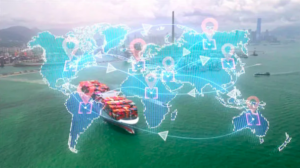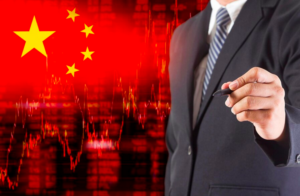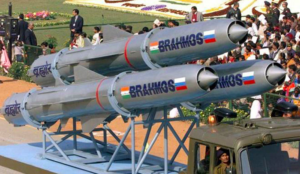As the Covid-19 pandemic has affected more than 200 countries and territories, infecting over 7 million people and killing more than 400,000, it is clear now that no country was prepared to face it successfully. Without certainty on what to do and what measures to take, the world’s leaders resorted to closing borders and declaring quarantines and lockdowns in many cities, isolating 4.4 billion people. Airspaces were closed, productive and industrial systems were paralyzed, and social distancing measures were enforced to avoid a further spread of the pathogen.
Concerns over Covid-19 became more noticeable as it began to impact all aspects of society, particularly economics, trade and labour. All forecasts now point towards a significant contraction in economic growth, with the IMF lowering its own forecast for global economic growth to a 3% contraction compared to a 3.3% expansion projection at the beginning of the year. However, given the dynamic pace of expectations, changing in a matter of hours, and as the measures taken to rein the spread and impact of the virus are still to show results, some observers are penciling in a 27% quarter-on-quarter contraction in trade. This situation is already comparable with World War II and the Great Depression of 1930. China, where the health crisis began, also considerably reduced its economic activity. A work published by the London Business School for the European Commission estimates that Chinese economic growth will be negative during the first two quarters of the year.
This is important for two reasons: first, the Asian country has been the one with the highest sustained economic growth in the last forty years, exhibiting double-digit figures, which means that part of the global economic growth depends on the health of its economy. Second, China is the largest consumer and importer of natural raw material on a global scale, including oil, coal, iron, steel and soy, just to name a few. Therefore, any decrease in China’s demand for these products has global consequences.
Threats and opportunities brought by the pandemic
After the virus made its appearance in Asia, spreading to Europe, North America and Africa, it made a late landing in Latin America and the Caribbean (LAC). Government’s responses in the region have been mixed, partly due to popular distrust in some leaders, such as those in Brazil, Mexico and Chile, but also because of the speed with which measures were taken in other countries, like El Salvador, Panama and Venezuela. The arrival of the virus ignited concern in political decision-making circles, already busy facing the persistence of social inequalities, poverty and deficiencies in public service infrastructures. Another weakness is the dependence on the export of the abovementioned raw materials, particularly to China.
The current situation represents a challenge not only to the health systems of Latin American countries, but also to their political leaderships, by testing their ability to provide timely and accurate response to the current challenge, but also to create appropriate room for discussion among civil society so as to reach a consensus on how to face this unprecedented crisis. In addition to the historical and political differences between countries in the region, with at times a deep mutual distrust affecting their ability to coordinate responses (the tense relations between Colombia and Venezuela being one of the most perfect examples), the political positions of local leaders and their diverging strategic interests act as barriers that hinder minimal agreements in the face of the pandemic.
In this scenario, China and the US, the two main powers with global leadership, have made their weight felt in the region in very contrasting ways. Amid accusations by President Trump and other representatives of his government about the alleged responsibility of China in misinforming the World on the initial spread of the virus, the historical LAC partner has distanced itself from the region, imbued in the dizzying dynamics that the pandemic has imposed on their own territory. In addition, the US are facing intense domestic divergence regarding the management of the health crisis, while also navigating a crucial year for the Republicans in this election year. In the meantime, China – that had an already increasing economic, political and cultural presence in the region – has taken advantage of this relative US absence by exhibiting leadership skills, be it for altruistic reasons, purely selfish geostrategic interests or a mixture of both.
This latest trend should be read in the wider context of China quickly becoming an important actor in LAC, with FDI between 2000 and 2018 covering 402 transactions for an aggregate amount of USD 122 billion (with mergers and acquisitions accounting for about 75% of the total). These have been mainly concentrated in three activities: natural resources & raw materials (60%), manufacturing (8.6%) and services (30.7%). Brazil, Argentina, Peru, Chile and Mexico are the countries that have benefited the most from the injection of resources via inward FDI. The anti-Chinese narrative deployed by President Trump therefore represents a threat to Beijing’s economic interests in the region, already plagued by uncertainties regarding the repayment of the many infrastructure loans that the country has extended throughout the region. The challenge for China is to reverse the negative effect that the anti-Chinese narrative, complete with the “China-virus”, “CCP-virus” and “debt-trap diplomacy”, has had on its international image and the willingness of many countries to engage further with China’s Belt and Road Initiative.
“Health diplomacy” as a resource for soft power
To address this threat, China began acting early in Europe, mainly in Spain and Italy, those countries most affected by the pandemic. Through an active deployment of “health diplomacy“, China aimed at regaining international trust and show solidarity by contributing technicians, doctors, medical supplies, technology and capital. Even local Chinese communities settled in Europe have been enrolled in these gestures of solidarity towards their fellow citizens, making donations to local health services.
Meanwhile, while LAC is going through crucial moments in confronting the pandemic, the region’s position in this fight has been weakened by the distancing of the US as well as the announcement by President Trump of a withdrawal from the WHO. These developments have presented China with an exceptional opportunity to strengthen cooperation and interdependence with the subcontinent, with important contributions to the local efforts to mitigate the damage. An airlift was established to send several shipments of supplies, PCR test kits, ventilators, masks, gloves, protective suits, technical advisers and doctors to Venezuela, Colombia, Peru, Bolivia, Brazil, Ecuador, Guyana, Chile, Argentina, Uruguay and Paraguay.
In the case of Venezuela, both nations established an airlift. As of May 14, the country had received 110 tons of medical material in five deliveries, for a total of 1 million PCR test kits, 150,000 molecular test kits, 8 million masks, 2 million pairs of gloves, 135,000 protective suits and 23,000 infrared thermometers. Next door, Colombia has been cautious regarding the information on donations and purchases from the Asian giant. In early April, the country received about USD 1.5 million in donations, including 680,000 protective face masks, 30,000 test kits, gloves, protective suits and glasses. Likewise, Peru received 100,000 masks, 20,000 molecular test kits and 5 artificial ventilators donated by online giant Alibaba, as well as 10 mechanical ventilators, 46 patient monitors, 18 ultrasound scanners, 36 defibrillators and 15 mechanical ventilators valued at USD 1.5 million donated by Chinese energy company Three Gorges.
Likewise, Alibaba donated 100,000 face masks, 20,000 reactive test kits and 5 mechanical ventilators to Bolivia, while Huawei did its part by contributing 50,000 surgical masks, 1,000 N95 masks, 500 safety suits and 500 glasses. In a third donation, the highland nation received an additional 20,000 protective glasses, 500 thermometers, and protective suits.
Brazil’s situation has been somewhat different, although this country has been China’s largest trading partner in the region. There, the pandemic has posed the greatest burden among economically disadvantaged population, and Brazil-China relations have been in an impasse since April, following the repeated hostile statements by representatives of Jair Bolsonaro’s government (including his own son). However, in spite of these differences, Brazil being a federal state, governors of the northeastern states requested direct support from Beijing, receiving in early May a donation of 150,000 masks and other materials from Chinese companies, mainly from the Industrial and Commercial Bank of China (ICBC). Additionally, Shanghai-based New Development Bank (NDB) offered Brasilia a loan for social and health infrastructure to the tune of USD 1 billion.
Ecuador, one of the countries in the region with the closest ties with Beijing, has received several donations: the first one made in early April by the City of Chongqing, including biosafety equipment consisting of 1,000 suits, 1,000 surgical gowns, and 5,400 masks. Later, the Tencent Global Foundation donated 2.2 tons in medical equipment (120,000 masks and 5,000 safety suits), followed by China National Petroleum Corporation (CNPC) sending 9.3 tons of supplies (10,000 protective suits, 70,000 masks, 10,000 glasses, 100,000 pairs of surgical gloves, and 500 thermometers). Other chinese companies such as China Meheco Group, China Road & Bridge Corporation and the China Development Bank also joined in the effort.
As of today, the Department of Public Health of Guyana has received two donations: the first one consisted of 500 face masks, 500 protective suits, 100 infrared thermometers, 500 medical glasses, 500 pairs of disposable gloves and 500 shoe covers. The second one, from the Alibaba Foundation, includes 30,000 face masks and 1,536 test kits.
Towards the southern cone, Chile received 15 tons in equipment valued at USD 2.5 million: 2 million masks, 50,000 pairs of gloves, 16,000 safety suits and 1,000 tests. It is estimated that two more shipments will be sent soon, managed by the Chilean embassy in China. It should also be noted that China donated 515 mechanical ventilators in April, in addition to the 11 that the All-China Federation of Industry and Commerce had donated earlier.
Argentina also obtained attention and support from China. However, this was not enough to avoid disagreements between the two governments, given the inconsistencies regarding the medical supplies purchased by the government of Buenos Aires. Despite this situation, the country has already received 3 shipments from the City of Hangzhou, from where Chinese companies donated 53,500 reactive test kits, 405,000 surgical face masks, 70,000 N95 face masks, 14,000 protective suits, 20 mechanical ventilators, 2,500 pairs of gloves, 700 thermometers, 2,000 goggles and 1,000 shoe covers. Companies such as Envision Energy, Cofco International Argentina SA, Bank of China Argentina, China Communications Construction Company, Fundación Mamut de Shenzhen and BGI Group participated in these efforts. Additionally, a mobile hospital was also received in donation.
Meanwhile, Uruguay received 150,000 masks, 20,000 test kits and 5 ventilators in March. Huawei Uruguay also made contributions of 150,000 surgical masks (1,000 of the N95 type), 1,000 hermetic suits and 1,000 protective glasses. In Paraguay, a country that does not have diplomatic relations with Beijing, a proposal by the Guasu Front was debated and rejected at the Senate which urged the Executive to seek a rapprochement with the People’s Republic of China. After purchasing medical supplies in China to combat Covid-19, the shipment was rejected twice by local health authorities for its lack of compliance with quality standards. The operation was finally canceled. The country however received USD 3.2 million from Taiwan for the purchase of medical equipment, in virtue of its diplomatic recognition by Asunción.
LAC strategic relations at a crossroads
The “soft power” deployed through the Chinese “health diplomacy” showcases the country as a responsible partner meeting its obligations of solidarity with those countries that maintain trading and diplomatic relationships with it. This influence strategy not only relies on state power, but also uses public and private companies as well as successful public figures, like Alibaba’s Jack Ma, as ambassadors. In total, Jack Ma has donated 2 million masks, 400,000 test kits and more than 100 ventilators to 24 countries, covering transportation costs.
The true motivations behind China engaging in this renewed diplomatic effort are still under discussion. At this point, it is important to remember that, in the Second Meeting of Ministers of Foreign Affairs of the Community of Latin American and Caribbean States (CELAC) and China, held in Santiago de Chile in 2018, LAC governments agreed with China on a Joint Action Plan for Priority Areas involving dialogue and exchange in the healthcare sector, support for control and disease prevention and the strengthening of health systems in the region, through the support and direct cooperation of government’s entities. An extension to LAC of China’s Health Silk Road…
However, for some critical voices in the region, this situation should call for careful reflection by local political leaders to avoid LAC countries to be coerced into choosing between their historical relationship with the US and their more recent but ever-deeper ties with China. On the contrary, this situation should encourage the reinforcement of LAC-wide regional integration, while at the same time benefiting from constructive and profitable relations with the two opposing powers.
Picture credits: Associated Press / Matiás Delacroix






Be First to Comment